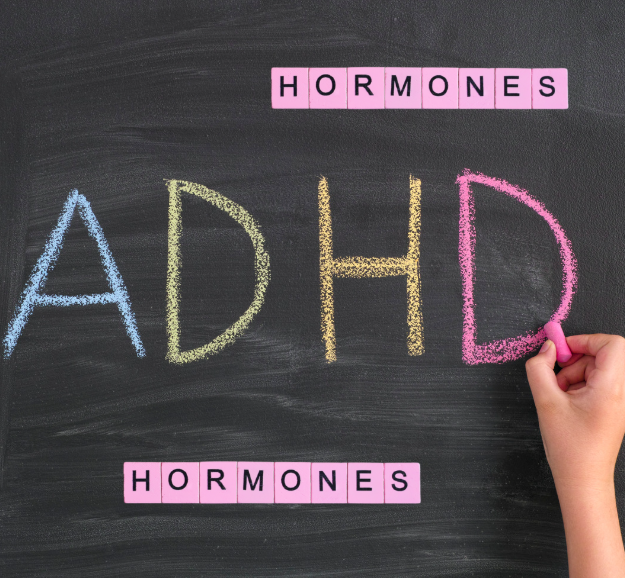Strategies for Boredom as an ADHD Individual
- Kaitlyn Boudreault

- Apr 11, 2025
- 4 min read
Updated: Oct 18, 2025
Are you feeling understimulated? Do you find yourself unable to complete tasks no matter how hard you try?
If so, your sensory needs might not be getting met. These experiences of boredom are common, especially for neurodivergent people.
For those with ADHD (Attention-Deficit/Hyperactivity Disorder), the brain constantly craves stimulation. Without it, boredom can set in quickly, leading to feelings of frustration, anxiety, or even executive dysfunction.

If you’re struggling with ADHD-related boredom, working with a neurodiversity-affirming therapist or ADHD coach can help.
Let’s explore what boredom is, how it impacts the ADHD brain, and strategies to help you re-engage in tasks and thrive.
What Is Boredom?
Boredom is a state of low stimulation combined with having excess energy, without anywhere to channel it. You may feel disconnected from your tasks, unable to focus, or like your time lacks meaning. As a result of these feelings of emptiness, you may feel frustrated or angry.
Signs of ADHD Boredom may include:
Why Am I Always Bored with ADHD?
While anyone can get bored, ADHDers are more susceptible due to differences in brain wiring. Common causes include:
Lack of stimulation
Inadequate rest
Monotony or repetitive tasks
Lack of autonomy or choice
Perfectionism and task paralysis
Low dopamine levels
Noise and environmental distractions
Tasks that feel too easy (or too hard)
If boredom feels chronic, it may point to undiagnosed ADHD or depression. It’s worth consulting a neurodivergent-affirming mental health professional.
What Happens in the ADHD Brain during Boredom?
The brain is a complex organ. When you’re bored, your brain shifts in noticeable ways:
Dopamine drops, which can lead to feelings of disengagement and restlessness.
The default mode network (associated with daydreaming) activates, which is linked to daydreaming and can pull you further from the task.
Activity in the prefrontal cortex slows down, which impairs decision-making, focus, and learning.
Why ADHD and Boredom Are Linked
The ADHD brain craves novelty, challenge, and reward. But when dopamine is low or a task feels unengaging, you may:
Zone out
Procrastinate
Become emotionally dysregulated and experience frustration, depression, and anger.
Experience RSD (Rejection Sensitive Dysphoria)
Possible neurological reasons include:
Lower Dopamine Levels: Tasks may provide less motivation and satisfaction, making it harder to find reward in everyday tasks. Due to this, you may need more stimulation to take you out of a state of boredom.
Reduced Brain Arousal: ADHDers have less activity in the brain areas responsible for focus and attention, making it harder to focus on future rewards.
Executive Functioning Challenges: Challenges with planning can lead to poor task initiation and follow-through.
Consequences of Chronic Boredom
Experiencing boredom from time to time is normal. But left unchecked, ADHD boredom can lead to:
Missed deadlines
Impulsive behaviors (like doomscrolling or impulse spending)
Increased social isolation or low self-esteem
Strategies to Manage ADHD Boredom
Get Moving: Movement increases the amount of dopamine, serotonin, and norepinephrine in the brain, which improves your focus, motivation, and energy. Take short movement breaks throughout your day.
Identify What Engages You: What activities do you rarely feel bored doing? Make a list of these activities that make you feel alive. These are your go-to boredom breakers.
Use Music Strategically: Instrumental or upbeat music can stimulate the brain's reward centers, block distractions, and reduce your risk of boredom.
Connect to Purpose: When you have clear objectives that align with your personal values, you’re more likely to engage with the material. Tie tasks to personal values and long-term goals. Intrinsic motivation can sustain focus far better than external rewards.
Practice "Productive" Boredom: Allow yourself to experience moments of boredom. Mindfully observe your boredom without escaping it. This builds mental resilience and may spark new perspectives that can enrich your learning experience.
Reframe Your Mindset: Boredom is not all negative and can be an opportunity to reflect, explore new interests, or reset. Reframe it as a time for reflection, not an obstacle. This change in perspective can help you learn in your idle moments.
Lean Into Humour and Play: Humor encourages relaxation, which can create a more open mindset, and is ideal for learning. Watch funny videos or find creative ways to make tasks enjoyable. Playfulness fuels engagement.
Wandering Brain Time: Find time to allow your brain to wander, worry, and daydream, which allows your brain the break it needs from the constant focus and attention. This reduces the chance of you getting bored. It also adds novelty to your tasks, which supports ADHD thinking.
Body Doubling or an Accountability Buddy: Work alongside someone else—either in-person or virtually. Their presence can helpful for those who get easily bored and find it difficult to maintain focus on the task at hand.
Do the Outdoors: Nature helps to provide a calming effect and a break from the task at hand, which can increase focus. It also causes an increase in serotonin levels, which can improve your mood and motivation.
Stimulating Activities for ADHD brains
Your brain needs stimulation. Not sure where to start? Try some of these ADHD-friendly activities:
Chewing gum or eating crunchy/spicy foods
Weighted blankets or tight hugs
Stargazing
Drawing, journaling, or creative writing
Playing background noise, white noise, or upbeat music
Using fidget tools or sensory bottles
Dancing, singing, or moving while working
Going to a theme park
Book a Free Consultation With Blue Sky Learning
As a team of neurodivergent-identified and allied coaches and therapists, Blue Sky Learning understands the challenges of ADHD understimulation and chronic boredom.
They can help you explore how you can reignite focus, motivation, and joy in your daily life.
Book a free 20-minute consultation.



Comments